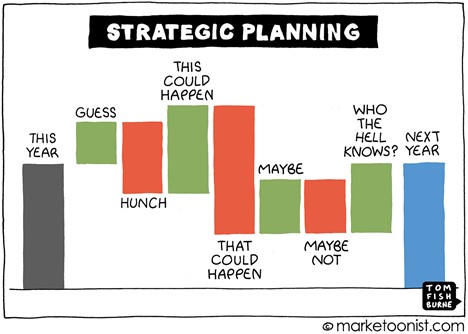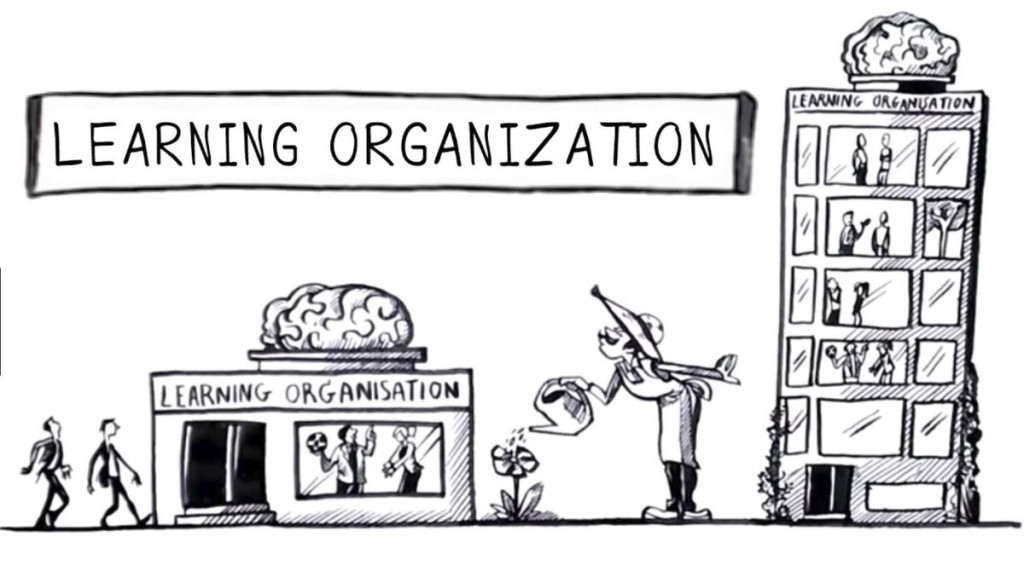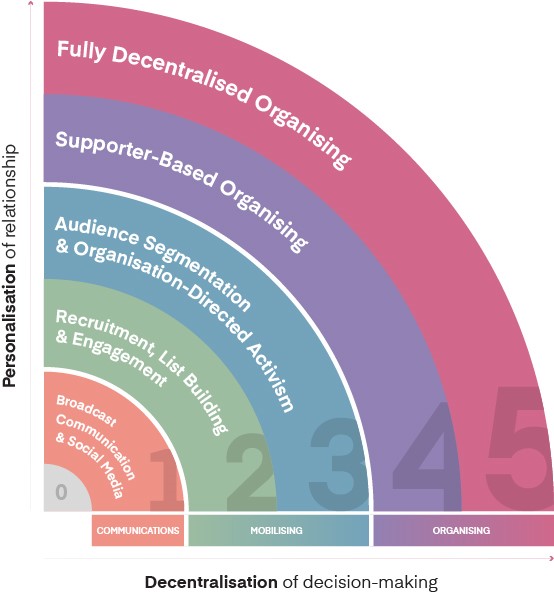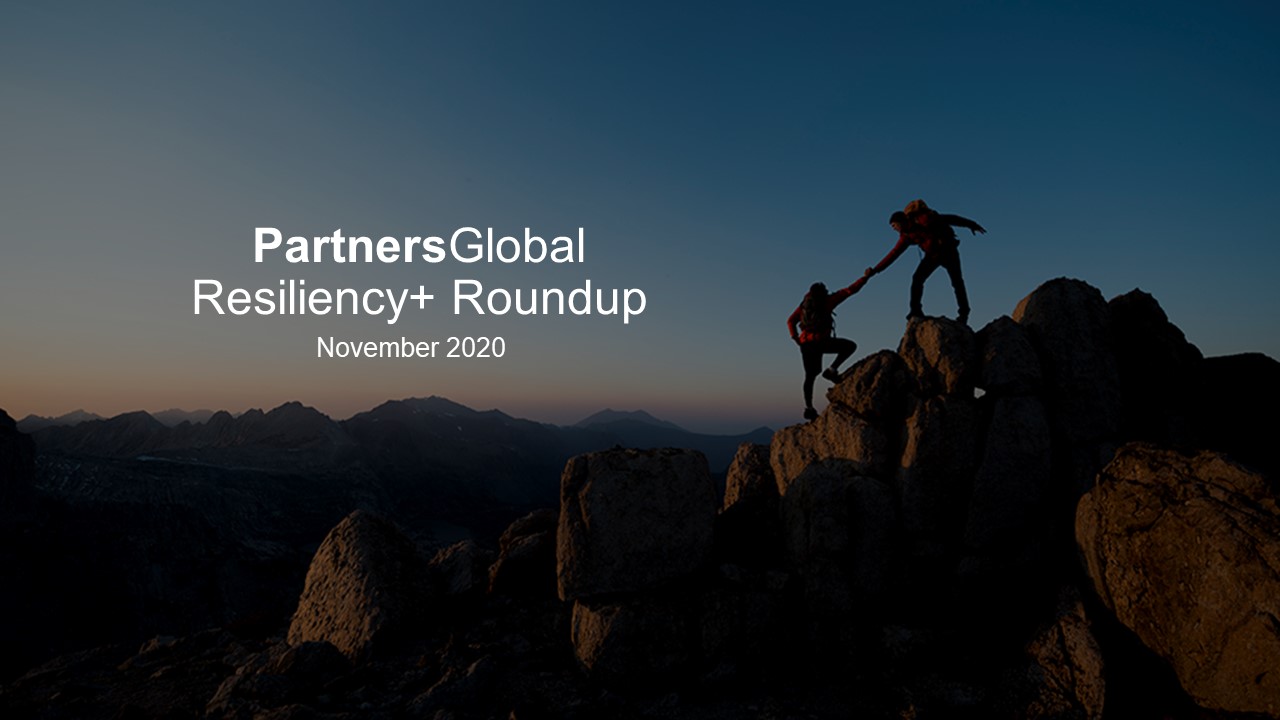Resiliency+ Roundup November 2020
November 24, 2020
The Resiliency journey for civil society organizations (CSOs) entails a commitment to self-reflection and recalibration, even while political or situational storms are raging around us. There is often not one correct answer, nor one perfect tool or quick solution; rather, CSO leaders at all levels need to come together to build on each other’s strengths and offer each other support as we try to incorporate a resiliency mindset to not only survive but thrive – together.
PartnersGlobal is pleased to share some of the wisdom and resources we have recently encountered that can help with that process of self-reflection and recalibration, organized by each of the seven key factors of civil society resiliency in the PartnersGlobal Resiliency+ Framework.
Adaptive Capacity: Preparing for the Unknown
Navigating Adaptive Approaches for Development Programmes: A Guide for the Uncertain: This working paper from ODI compares six of the most prominent adaptive approaches: three from the world of innovation, largely in the private sector (agile, lean startup and human-centered design), and three from the global development sector (thinking and working politically, forms of adaptive management and problem-driven iterative adaptation).
Find inspiration in the cartoons from Marketoonist that poke fun at the limitations of strategic planning and remind us of the importance of being agile during times of flux.

Learn more about the Adaptive Capacity factor in the Resiliency+ Framework here.
Business Acumen: Entrepreneurial Mindset
Are you trying to take your fundraising events online? Mobile Cause and TechSoup have released a Tech Setup Guide for Virtual Fundraising Events eBook to help non-profits incorporate the best virtual tools and practices to host virtual fundraisers.
This paper from NetHope presents differences between organizations that use technology as a utility (i.e., ‘Tech-Enabled’ nonprofits) versus organically (i.e. ‘Digital’ nonprofits), highlighting the need for organizations that are resource-constrained to focus on what matters most by continuously applying relevant technologies and innovation in their operations and program activities.
Learn more about the Business Acumen factor in the Resiliency+ Framework here.
Situational Awareness: Systems Thinking
The Waters Center for Systems Thinking has a series of tools and strategies on their website, including a fun card game to help you and your team uncover the Habits of a Systems Thinker. For example, do you consider issues fully and resist the urge to come to quick conclusions?
Systems Innovation provides a useful tool, “The Iceberg Canvas”, to start thinking about and mapping out the different levels of a system you are dealing with – including observable events, underlying patterns, supporting structures, and ultimately the mental models used.
Learn more about the Situational Awareness factor in the Resiliency+ Framework here.
Resiliency Ethos: Embracing Uncertainty
In this article, Mirjam Neelen reflects on the difference between organizational learning and becoming a “learning organization,” including a review of ways to analyze and assess the extent to which an organization has a learning culture.

The Ford Foundation recently released a new Cybersecurity Assessment Tool, designed to measure the maturity, resiliency, and strength of an organization’s cybersecurity efforts. They have created this questionnaire with busy non-technical civil society organizations in mind. The assessment covers four key areas: (1) Operational Security; (2) Device Security; (3) Account Security; and, (4) Associated Risks.
Learn more about the Resiliency Ethos factor in the Resiliency+ Framework here.
Engaging the Narrative: Intentional Communications
When faced with misleading, inaccurate, and untruthful statements about our issues, the best way to counter false information is to tell our affirmative story in ways that overcome the other side’s falsehoods. This article by the The Opportunity Agenda explains why we should avoid myth-busting in our communications.
Caroline Cassidy from On Think Tanks provides an excellent overview of seven key learnings on Narrative Change to help spark ideas about narratives within your own work, taking from the expertise of change makers from around the globe who are grappling with narratives every day.
Learn more about the Engaging Narratives factor in the Resiliency+ Framework here.
Connectedness: Greater than the Sum of its Parts
Tectonica surveyed hundreds of advocacy organizations in Europe to then develop a Five-Part Framework for Digital Organizing that breaks down the full spectrum of online activities in people-powered efforts to impact political change and classifies them into five major categories.

Curtis Ogden wrote a useful summary of “Lean Weaving” for the Interaction Institute for Social Change in which he describes that actions for resilience must happen at more local and regional levels, connecting diverse players in a place, helping to encourage more robust exchanges of all kinds and culture building. Lean weaving would entail ensuring that smaller systems remain alert, quick, and flexible so as to experiment, learn, and adapt.
Learn more about the Connectedness factor in the Resiliency+ Framework here.
Legitimacy: Radical Transparency and Constituent Engagement
Kevin Xu, the Founder of Human Heritage Project and the CEO of MEBO International, discussed in Forbes the fact that nonprofit organizations are usually good about gathering feedback but can struggle to incorporate it into their constituency engagement strategies. He offers three creative and concrete recommendations for improving feedback processes within the nonprofit sector.
The West Africa Civil Society Institute has converted their Social Accountability Guide into a training program for CSOs in Liberia. They recently presented their experience in enhancing the skills of CSOs to implement innovative social accountability initiatives and reinforce effective engagement in promoting social accountability, as well as their experience influencing CSOs to initiate a community of practice of social accountability champions.
Learn more about the Legitimacy factor in the Resiliency+ Framework here.
